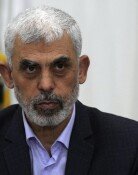Is bipartisan accord a children`s game?
Is bipartisan accord a children`s game?
Posted March. 22, 2013 07:05,
Five days ago, the ruling Saenuri Party and the main opposition Democratic United Party agreed on President Park Geun-hyes proposal for government reorganization. Though the agreement was reached 46 days after the proposal was introduced to the National Assembly and 21 days after the Park administration`s launch, the public welcomed a compromise that came after a severe political standoff. The ruling party called the agreement fortunate, albeit belatedly, while its rival said it made concessions but protected what it was supposed to. So the rest of the process was expected to proceed smoothly. Parliament, however, failed to honor its agreement to pass the government reorganization bill Wednesday as promised or a day after the date. Are bipartisan agreements and promises merely childrens play?
The legislature failed to pass the bill because ruling and opposition members of the National Assemblys Committee on Culture, Sports, Tourism, Broadcasting and Communication are in a new debate over what was not specified in the agreement. After the floor leaders of the two parties resolved differences over the jurisdiction over new media, committee members are arguing over whether the Korea Communications Commission or the forthcoming ministry in charge of science and information technology should have the authority to license terrestrial broadcasting and if changing licenses for cable TV system operators should be subject to the commission`s consent. As the saying goes, the devil is in the details.
The main culprit is the bipartisan failure to pay attention to details. If an agreement is reached by looking at the big picture, however, details should be faithful to the agreement. Lawmakers are exceeding their authority by arguing over what was not specified in the agreement. Even if both parties blamed their floor leaders for the oversight, they should not nullify the agreement itself.
When both parties agreed on the government reorganization bill, Saenuri sought to protect President Parks cause for creative economy, while the main opposition party wanted to ensure fairness in broadcasting. Neither side might not be fully satisfied with the agreement, but since it was reached, they should now let the new administration do its job.
Nearly a month has passed since the new administration was inaugurated yet the president has failed to submit to parliament requests for confirmation hearings for her nominees to head the science and oceans and fisheries ministries. She also canceled a Cabinet meeting scheduled for Thursday because of parliament`s failure to pass the government reorganization bill. Despite renewed threats from North Korea, the president has not appointed the director of the National Security Council, the control tower for national security. Ministries whose business areas have been readjusted are not functioning normally, not to mention those that have been newly created. The positions of deputy prime minister for the economy and defense minister have not been filled yet, though they have nothing to do with the government reorganization bill. How much longer will bipartisan gridlock leave the government in paralysis?
Headline News
- N. Korea redefines S. Korea as ‘hostile state’ in revised constitution
- Samsung develops graphic DRAM with industry-leading capacity and speed
- Three questions allegedly leaked via text message during Yonsei Univ. essay test
- China to inject 340 trillion won in loans to support real estate sector
- Dodgers beat Mets to take 2-1 lead in NLCS







